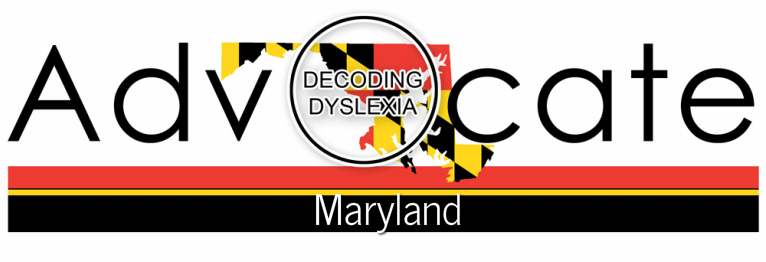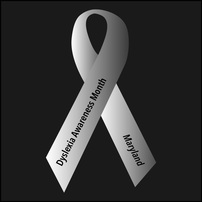At a literacy convention recently, Decoding Dyslexia Maryland was asked by a group of teachers: "where can we find training? What can we do on Monday to help our kids?" Teachers also wondered why they didn't learned how to teach kids with dyslexia in their college reading courses. Where to find training just became a whole lot easier for teachers -- here are some options:
Dyslexia Educator Training in Maryland:
- The Center for Effective Reading Instruction: There is a new training and professional development opportunity available for schools, teachers, districts and states to ensure all teachers are up to speed on dyslexia and reading disabilities -- it's called the CENTER FOR EFFECTIVE READING INSTRUCTION (CERI). CERI is located in Baltimore and offers an array of training and certification levels for interested students and teachers. CERI also accredits university education programs: LINK HERE
- The Atlantic Seaboard Dyslexia Education Center: ASDEC's graduate-level training in structured multisensory language instruction enables teachers, tutors, parents and other educators to teach success to students with even the most severe learning disabilities. For educators interested in learning more about dyslexia and how to work with students with language learning disabilities, a new option for this summer will be taught by Sandra Thompson, QI, CALT author of Language Foundations who will present this Orton-Gillingham Structured Literacy Curriculum in Rockville. This course prepares candidates for certification as Academic Language Practitioners (aka Licensed Dyslexia Practitioners).
- Orton-Gillingham Training, by bowman educational services (Fran Bowman): Offers training courses throughout the summer for educators who would like to learn about the Orton-Gillingham approach to teaching reading, writing and spelling.
When teachers learn the structure of the English language and how to teach struggling readers, they can and will make a difference for students. 63% of Maryland students read below proficient -- it's time to change the way we teach reading, writing and spelling so we can reach all our students and narrow the reading gap in Maryland.
SOMEDAY SOON, THE STORY BELOW WILL BE CONSIDERED "THE OLD WAY"
The following summary is from the Wright's Law web site, a rich resource for parents and teachers of students with special needs. Below is an excerpt from the website that explains a legal case where the child had dyslexia and the parents removed him from school and won reimbursement because the IEP was too generic and did not meet the child's individual needs.
Alex Gerstmyer v. Howard County Public Schools
"After the Supreme Court issued the decision in Carter, an interesting case arose in Columbia, Maryland. This case involved Alex Gerstmyer, a 6 year old child who also had dyslexia. Although Alex had "red flag" problems in Kindergarten, the staff at Alex’s school waited before testing him—they thought that he might "grow out of his problems."
When Alex began first grade, he had still not been evaluated. There was no IEP in place for him. Alex quickly realized that he was different from the other children—he was not learning how to read. At home, he was distraught and said that he was "stupid." His alarmed parents had him evaluated by a private sector psychologist—this testing confirmed that Alex had dyslexia.
Later in the Fall, the public school did propose an IEP. The parents felt that the IEP was vague and did not provide Alex with the help he needed to overcome his dyslexia. Alex was becoming more upset by the day—saying that he was stupid and didn’t want to live. Presented with an inadequate IEP for their son, his parents removed him from the public school program and placed him into a Montessori school (non- special education school) and asked for tuition assistance. (Gerstmyer v. Howard County Public Schools, 850 F. Supp. 361, 20 IDELR 1327 (D. MD 1994)
In his decision, Judge Motz described the public school IEP as ". . . nothing more than a collection of forms prepared for other students stating only general goals and not at all tailored to Alex’s special needs."
Because the IEP was not tailored to Alex’s unique needs as a child with dyslexia, Judge Motz awarded Alex’ parents reimbursement for their son’s education at the Montessori school."
You can find Maryland legal information here:
Reports
State Complaint Letters of Finding
Fiscal Year 2016
Fiscal Year 2015
Fiscal Year 2014
Fiscal Year 2013
Due Process Hearing Decisions, and End-of-Year Hearing and Mediation Outcome Reports by Public Agency
Fiscal Year 2016
Fiscal Year 2015
Fiscal Year 2014
Fiscal Year 2013



 RSS Feed
RSS Feed